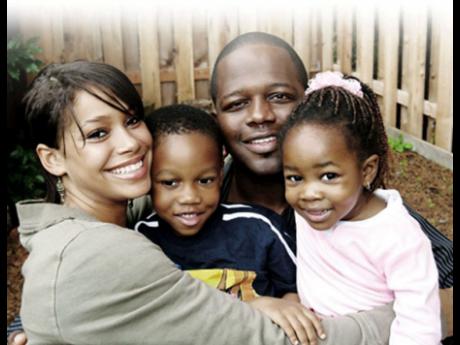Dealing with over protective parents
Many parents, especially those with just one child, tend to be overprotective of their children.
They raise them so sheltered that the children don't get a chance to do things for themselves. Parents believe that they are the only ones who can ensure their children's safety on school trips, and if they don't accompany the children, the teacher in charge has to deal with frantic phone calls and numerous bits of advice regarding their children.
It is so bad that it's even a hard task for parents to allow the child the freedom to spend a vacation with their own relatives!
But is it really overprotectiveness or just being careful in a world where children are so at risk these days? Family and Religion reached out to Dr Patrece Charles of the Phoenix Counselling Centre to weigh in on the issue.
Charles suggested that parents can hover over their children in ways that can cause impairment.
"There are parents who literally think it's too dangerous to let their children play outside, or surf the Internet unattended for fear that their children will be whisked away by a sexual predator. Where's the middle ground on keeping children safe? It seems to have disappeared," she argued.
Extreme parenting
Charles noted that in protecting children from themselves, some parents have now gone to extremes, causing children to be less safe because they never learn how to fend for themselves or to tolerate adversity.
"Overprotective parents generally want to protect their children from harm, from hurt and pain, from unhappiness, bad experiences and rejection, from hurt feelings, failure, and disappointments," Charles pointed out. "This protective tendency may sound admirable to begin with until you closely examine what experiences their children are prevented from having," she added.
Charles argued that it is difficult for parents to accept the reality of their fears for their children - fears that often include statements like, 'Watch out, you'll fall!', when at a playground, or 'Be careful, you'll have an accident!', while riding their bicycles.
She said that these parents often envision fear in most situations, and by projecting this fear on to their children, they are creating fear-filled, anxious individuals.
"From the minute they are born, children begin the long journey towards independence. So it stands to reason that parents must also begin the long journey of letting go.
"Overprotective parents create continuous situations from which their children struggle to escape until eventually, there is no escape as the fears have become part of the pattern for the child's way of thinking," stated Charles.
Referring to this type of parenting as 'smothering' rather than mothering, Charles said that it is ineffective and fails to instill virtues and values such as responsibility, courage, self-esteem, self-respect, and confidence in the child.
Smothering ineffective
"Instead, it gives children the message that they can't be trusted and that they are incapable of normal events that other children handle with ease," the counsellor shared.
She advised parents who recognise tendencies in themselves like being fear-filled and overprotective to seek professional help to identify the basis of these behaviours.
In striking the balance between paranoia and ensuring children's safety, Charles said that parents ought to allow their children to explore, conquer, climb, and master new activities as this will provide the means for tremendous growth and learning both for them and the parent.
"In order to become responsible, confident, assertive, independent adults, children need opportunities to explore their environment both physically and emotionally without continuous interference from their parents," she pointed out.
It is normal to experience fear while being adventurous - be it climbing, swimming, or skating among other activities. But, according to Charles, it need not be translated into fear for them.
"Let go and allow your children to fall, make mistakes, experience rejection, feel jealousy, and suffer defeat. Help them to manage and regulate their emotions that may result from their experiences.
"Let go and watch them grow in confidence, skill, responsibility, and emotional intelligence as they learn from all life has to offer them," said Charles.

